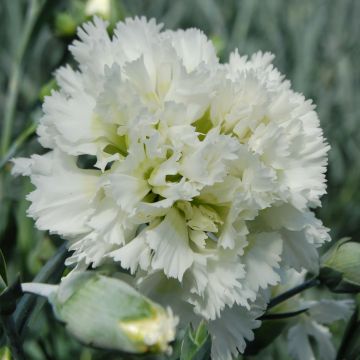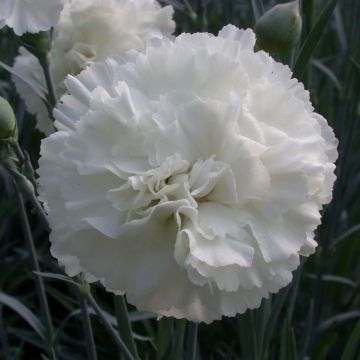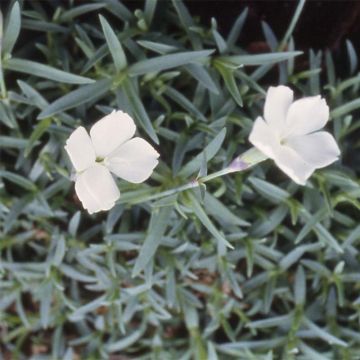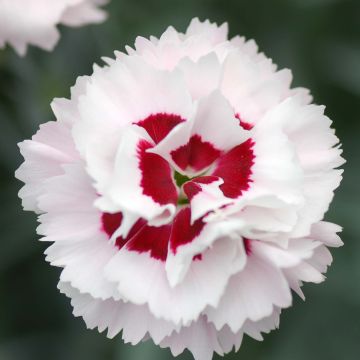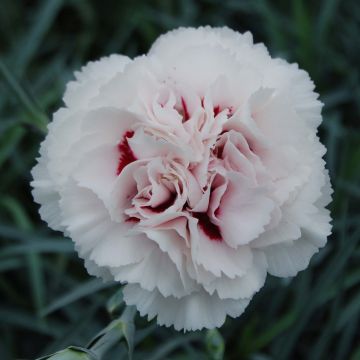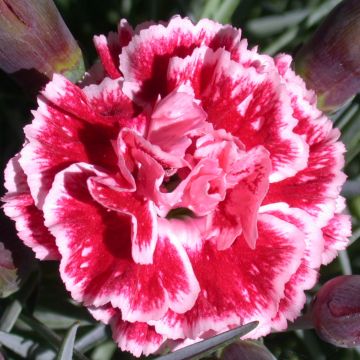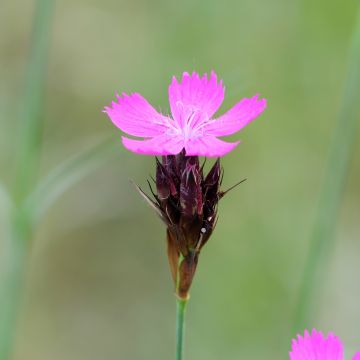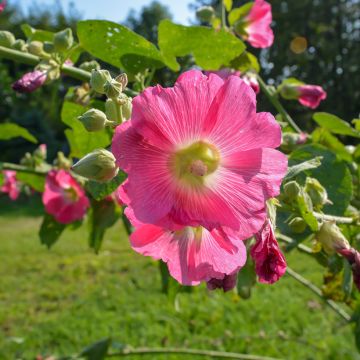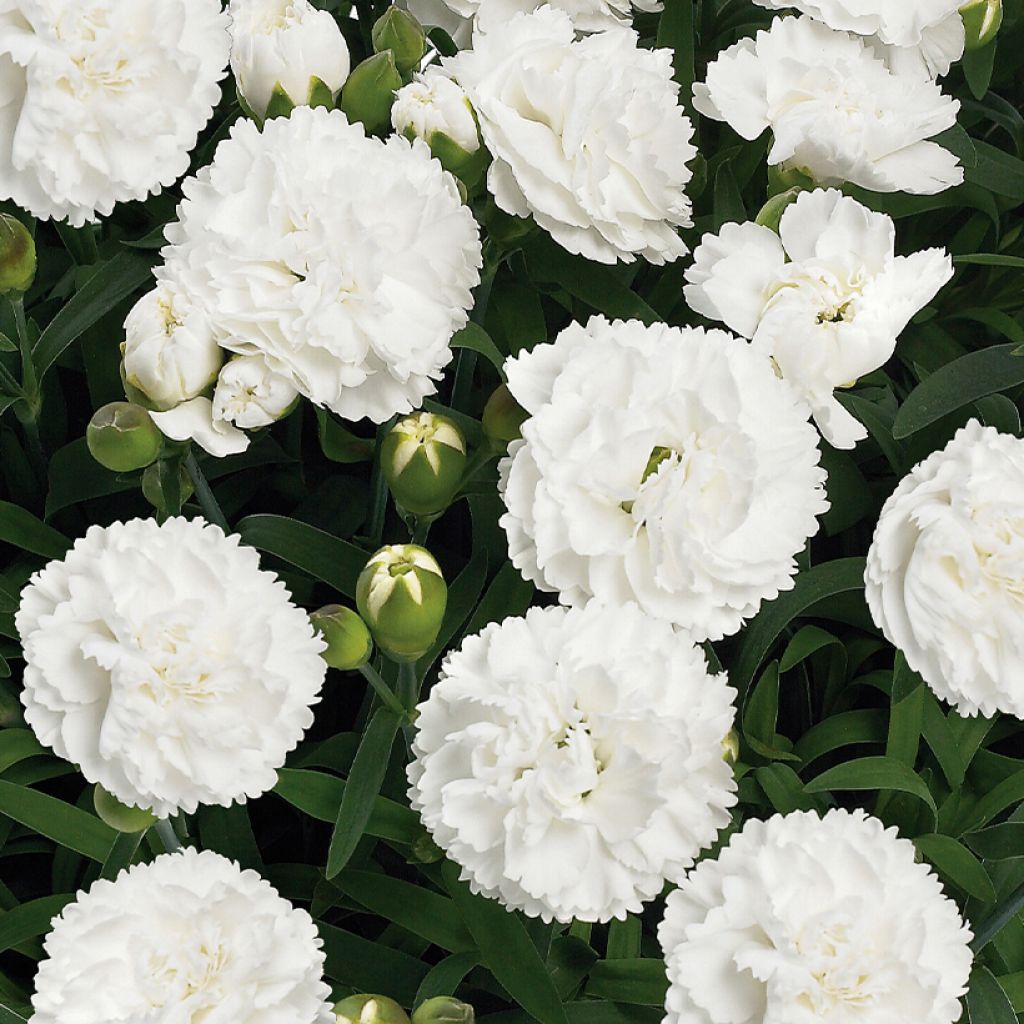

Dianthus Sunflor Cosmos
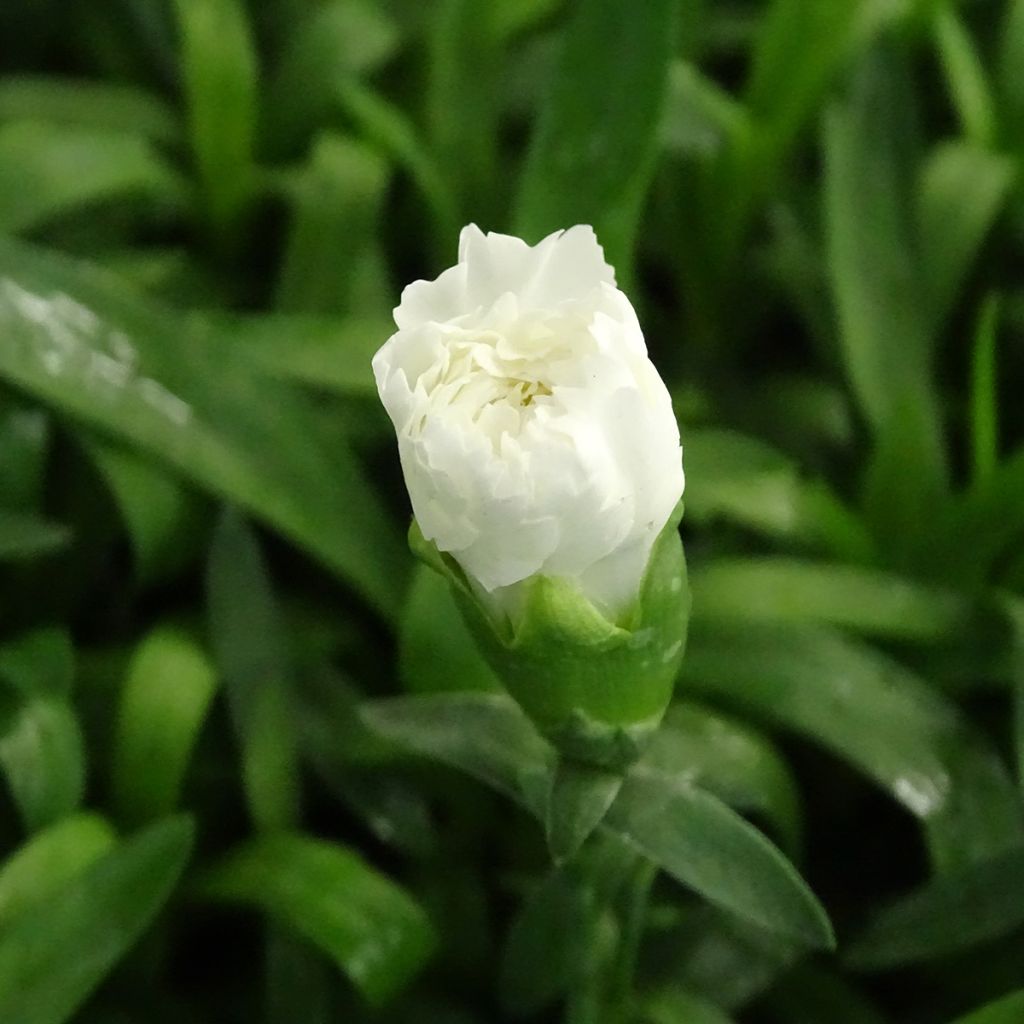

Dianthus Sunflor Cosmos
Dianthus Sunflor Cosmos
Dianthus Sunflor® Cosmos
Pink, Pot Carnation
Why not try an alternative variety in stock?
View all →This plant carries a 6 months recovery warranty
More information
We guarantee the quality of our plants for a full growing cycle, and will replace at our expense any plant that fails to recover under normal climatic and planting conditions.
From €5.90 for pickup delivery and €6.90 for home delivery
Express home delivery from €8.90.
From €5.90 for pickup delivery and €6.90 for home delivery
Express home delivery from €8.90.
Does this plant fit my garden?
Set up your Plantfit profile →
Description
Dianthus Sunflor Cosmos is a remarkable, dwarf and compact variety of perennial double carnation forming a small cushion of bluish-grey foliage. Also ideal for creating high-quality floral compositions. This selection is part of the Sunflor range and stands out for its early, abundant flowering of delicately scented flowers that brighten the garden from April to September. This evergreen perennial is easy to grow in the ground or in pots. It can tolerate temperatures as low as -10°C (14°F). Cosmos produces bright and vigorous pure white flowers throughout the season. This plant develops into a robust cushion, capable of withstanding dry or rocky soils, and thrives in full sun.
Dianthus Sunflor Cosmos belongs to the Caryophyllaceae family, which includes soapwort, pearlwort, and baby's breath. It is one of many varieties resulting from cross-breeding between Dianthus plumarius and Dianthus caryophyllus. Dianthus plumarius is a European perennial plant, the main ancestor of various old and modern varieties of carnations. Dianthus caryophyllus, of Mediterranean origin, has passed on its wonderful clove scent and tolerance to chalky and dry soils. The Sunflor 'Cosmos' carnation grows rapidly, reaching a maximum height and spread of 15 to 20 cm (6 to 8in). It forms a dense clump, producing wide, round, double flowers 3 to 4 cm (1 to 2in) in diameter carried by short, branched stems, from April to October. Its linear, evergreen, leathery, beautiful bluish-grey leaves, are pointed and smooth.
The Sunflor Dianthus collection is versatile and unique. It has many different colours, flower shapes, and plant types. All varieties in this selection flower continuously from spring to autumn, tolerate temperatures as low as -10°C (14°F), and have a compact growth habit. The plants can be used outdoors as well as indoors. The fragrant and colourful flowers, have excellent durability in small bouquets or buttonholes.
Dianthus Sunflor is ideal for terraces, balconies, borders, slopes, and rockeries. It has low water requirements but needs plenty of sunlight. Its charming, scented flowers are wonderful anywhere. The different Sunflor varieties, such as Sinclair, Megan, Evert, Cosmos, or Beetle will illuminate your garden with their vibrant colours. They blend beautifully with varieties of Sweet William (Dianthus plumarius), Sun Roses, Silene schafta Splendens, Arabis, Wall Bellflower, Moss Phlox (Phlox subulata), Aubrietas, Erigeron karvinskianus, Rock Soapwort (Saponaria ocymoides), or bloody cranesbills (Geranium sanguineum). To recreate a nostalgic atmosphere, plant these adorable carnations alongside peonies and old roses. A harmonious association can be created by combining Sunflor® Dianthus with Munstead Lavender, Pincushion Pink Scabious, Dwarf Gaillardia, and Sunray Tickseed, offering an elegant and harmonious contrast. You can also combine them with annual plants such as petunias, lobelias, and garden verbenas (Verbena Endurascape), offering a dazzling array of vibrant shades. Cosmos and osteospermums are also good choices to extend the flowering period.
Note: Attention, our young plug plants are professional products reserved for experienced gardeners: upon receipt, plant them as soon as possible, in pots, containers, or directly in flower beds.
Report an error about the product description
Flowering
Foliage
Plant habit
Botanical data
Dianthus
Sunflor® Cosmos
Caryophyllaceae
Pink, Pot Carnation
Cultivar or hybrid
Other Dianthus - Pinks
Planting and care
Plant Dianthus Sunflor Cosmos in the spring, in ordinary, permeable and humus-bearing, rocky, clayey or limestone, dry to moist, well-drained soil. A gravel-rich soil gives good results. When planted in the ground, this plant is hardy to -10 °C (14°F). It prefers a very sunny exposure.
Prune slightly after flowering to promote foliage renewal and a dense habit, especially in rich soil. In poor soil, apply a balanced fertiliser in March.
Planting period
Intended location
Care
This item has not been reviewed yet - be the first to leave a review about it.
Cottage garden perennials
Haven't found what you were looking for?
Hardiness is the lowest winter temperature a plant can endure without suffering serious damage or even dying. However, hardiness is affected by location (a sheltered area, such as a patio), protection (winter cover) and soil type (hardiness is improved by well-drained soil).

Photo Sharing Terms & Conditions
In order to encourage gardeners to interact and share their experiences, Promesse de fleurs offers various media enabling content to be uploaded onto its Site - in particular via the ‘Photo sharing’ module.
The User agrees to refrain from:
- Posting any content that is illegal, prejudicial, insulting, racist, inciteful to hatred, revisionist, contrary to public decency, that infringes on privacy or on the privacy rights of third parties, in particular the publicity rights of persons and goods, intellectual property rights, or the right to privacy.
- Submitting content on behalf of a third party;
- Impersonate the identity of a third party and/or publish any personal information about a third party;
In general, the User undertakes to refrain from any unethical behaviour.
All Content (in particular text, comments, files, images, photos, videos, creative works, etc.), which may be subject to property or intellectual property rights, image or other private rights, shall remain the property of the User, subject to the limited rights granted by the terms of the licence granted by Promesse de fleurs as stated below. Users are at liberty to publish or not to publish such Content on the Site, notably via the ‘Photo Sharing’ facility, and accept that this Content shall be made public and freely accessible, notably on the Internet.
Users further acknowledge, undertake to have ,and guarantee that they hold all necessary rights and permissions to publish such material on the Site, in particular with regard to the legislation in force pertaining to any privacy, property, intellectual property, image, or contractual rights, or rights of any other nature. By publishing such Content on the Site, Users acknowledge accepting full liability as publishers of the Content within the meaning of the law, and grant Promesse de fleurs, free of charge, an inclusive, worldwide licence for the said Content for the entire duration of its publication, including all reproduction, representation, up/downloading, displaying, performing, transmission, and storage rights.
Users also grant permission for their name to be linked to the Content and accept that this link may not always be made available.
By engaging in posting material, Users consent to their Content becoming automatically accessible on the Internet, in particular on other sites and/or blogs and/or web pages of the Promesse de fleurs site, including in particular social pages and the Promesse de fleurs catalogue.
Users may secure the removal of entrusted content free of charge by issuing a simple request via our contact form.
The flowering period indicated on our website applies to countries and regions located in USDA zone 8 (France, the United Kingdom, Ireland, the Netherlands, etc.)
It will vary according to where you live:
- In zones 9 to 10 (Italy, Spain, Greece, etc.), flowering will occur about 2 to 4 weeks earlier.
- In zones 6 to 7 (Germany, Poland, Slovenia, and lower mountainous regions), flowering will be delayed by 2 to 3 weeks.
- In zone 5 (Central Europe, Scandinavia), blooming will be delayed by 3 to 5 weeks.
In temperate climates, pruning of spring-flowering shrubs (forsythia, spireas, etc.) should be done just after flowering.
Pruning of summer-flowering shrubs (Indian Lilac, Perovskia, etc.) can be done in winter or spring.
In cold regions as well as with frost-sensitive plants, avoid pruning too early when severe frosts may still occur.
The planting period indicated on our website applies to countries and regions located in USDA zone 8 (France, United Kingdom, Ireland, Netherlands).
It will vary according to where you live:
- In Mediterranean zones (Marseille, Madrid, Milan, etc.), autumn and winter are the best planting periods.
- In continental zones (Strasbourg, Munich, Vienna, etc.), delay planting by 2 to 3 weeks in spring and bring it forward by 2 to 4 weeks in autumn.
- In mountainous regions (the Alps, Pyrenees, Carpathians, etc.), it is best to plant in late spring (May-June) or late summer (August-September).
The harvesting period indicated on our website applies to countries and regions in USDA zone 8 (France, England, Ireland, the Netherlands).
In colder areas (Scandinavia, Poland, Austria...) fruit and vegetable harvests are likely to be delayed by 3-4 weeks.
In warmer areas (Italy, Spain, Greece, etc.), harvesting will probably take place earlier, depending on weather conditions.
The sowing periods indicated on our website apply to countries and regions within USDA Zone 8 (France, UK, Ireland, Netherlands).
In colder areas (Scandinavia, Poland, Austria...), delay any outdoor sowing by 3-4 weeks, or sow under glass.
In warmer climes (Italy, Spain, Greece, etc.), bring outdoor sowing forward by a few weeks.


































